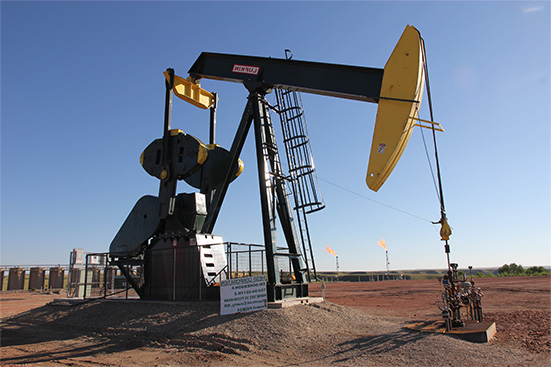
Artificial Intelligence (AI) is making waves in every industry, and oil and gas are no exceptions. With its ability to process massive amounts of data and make real-time decisions, AI is revolutionizing how oil and gas companies operate. From improving exploration accuracy to enhancing production efficiency and safety, AI is reshaping the way the industry addresses challenges. Let us explore how AI is currently being used in oil and gas exploration and operations, and why it’s becoming a key tool for increasing productivity and reducing costs.
AI’s Role in Predictive Maintenance
One of the most immediate ways AI is impacting the oil and gas industry is through predictive maintenance. In an industry where machinery downtime can cost millions, AI’s ability to foresee equipment failure is a game-changer. By analyzing vast amounts of data from machinery and systems, AI can predict when equipment will need repairs before it breaks down. This helps prevent costly delays and reduces the risk of accidents, ensuring a safer and more efficient operation.
For instance, AI systems can detect patterns that might go unnoticed by humans, allowing maintenance teams to address issues before a pump or drill fails. This preventive approach extends equipment life and reduces the need for costly replacements, leading to significant savings for both investors and companies.
Enhancing Exploration with AI
Finding oil and gas reserves used to involve a lot of guesswork – until AI entered the scene. AI-driven tools now assist geologists and engineers in predicting where to drill, reducing the time and cost spent on exploration. By analyzing geological data, AI can create detailed models of underground formations, helping companies to make more informed drilling decisions.
This is especially beneficial in reducing dry holes – those costly explorations that don’t yield results. AI enables companies to pinpoint viable locations with greater accuracy. For investors, this means faster and more efficient operations, increasing the potential return on investment.
Contact DW Energy
Want to learn more about oil & gas investing? Our expert team can provide you with more information or schedule a consultation to talk about diversifying your investment portfolio.

AI in Production Optimization
AI doesn’t just stop at exploration – it continues to streamline production. AI algorithms can optimize drilling operations, monitor reservoir conditions, and even provide real-time recommendations for adjustments. With AI overseeing these processes, companies can maximize output while minimizing waste and inefficiencies.
A prime example is AI’s ability to analyze real-time data from drilling rigs. It can adjust the drilling path to extract more resources or signal when production should slow down to protect the reservoir. This level of real-time decision-making was unheard of just a few years ago. For investors, this boost in efficiency means more oil is produced at a lower cost.
Improving Health, Safety, and Environment (HSE) Measures
The oil and gas industry is heavily regulated for health, safety, and environmental reasons. AI is playing a significant role in ensuring companies comply with these regulations. By continuously monitoring operations, AI systems can detect early warning signs of potential hazards – helping to prevent accidents or environmental spills before they occur.
AI’s ability to predict risks and recommend preventive actions is vital for maintaining safe working conditions and protecting the environment. This helps companies avoid fines and builds investor confidence by ensuring responsible and sustainable operations.
AI-Powered Data Analytics for Better Decision-Making
Oil and gas companies generate massive amounts of data – often too much for humans to analyze efficiently. This is where AI shines. AI can quickly analyze large datasets, providing valuable insights to help companies make smarter decisions. From optimizing supply chains to managing resources and planning future projects, AI keeps businesses ahead of the curve.
For example, AI can forecast market trends, allowing companies to adjust their production rates accordingly. When paired with traditional data analysis methods, AI offers companies a competitive edge – one that investors are sure to appreciate.
Reducing Carbon Emissions with AI
With global attention on climate change, reducing carbon emissions has become a priority for oil and gas companies. AI can play a vital role by helping companies optimize their energy use, reduce waste, and lower their carbon footprint.
By analyzing energy consumption data, AI systems can pinpoint areas where operations are using more energy than needed. It can then suggest adjustments to make processes more efficient – leading to fewer emissions. For investors concerned about sustainability, this AI-driven approach to reducing carbon emissions provides reassurance that the industry is actively addressing environmental concerns.
AI and the Future of Oil and Gas
AI is transforming oil and gas exploration and the industry in general from the ground up, offering innovations in predictive maintenance, exploration, production optimization, and more. For investors, these advancements promise increased efficiency, cost savings, and greater returns. As companies continue to leverage the power of AI, the future of the oil and gas sector looks brighter than ever.
To learn more about how AI and other technologies are shaping the future of oil and gas investments, visit DW Energy Group.
Contact dw energy
Sources:
“AI in Oil & Gas Exploration: Maximizing Discoveries, Minimizing Costs,” Datategy, https://www.datategy.net/2024/01/09/ai-in-oil-exploration-maximizing-discoveries-minimizing-costs/
“Unleashing the Potential of AI in the Oil and Gas Industry,” Appinventiv, https://appinventiv.com/blog/artificial-intelligence-in-oil-and-gas-industry/
“How Can AI Revolutionize Risk Management in Oil & Gas?” Datategy, https://www.datategy.net/2024/01/03/how-can-ai-revolutionize-risk-management-in-oil-gas/
“Role of artificial intelligence in carbon cost reduction of firms,” ScienceDirect, https://www.sciencedirect.com/science/article/abs/pii/S0959652624008606
